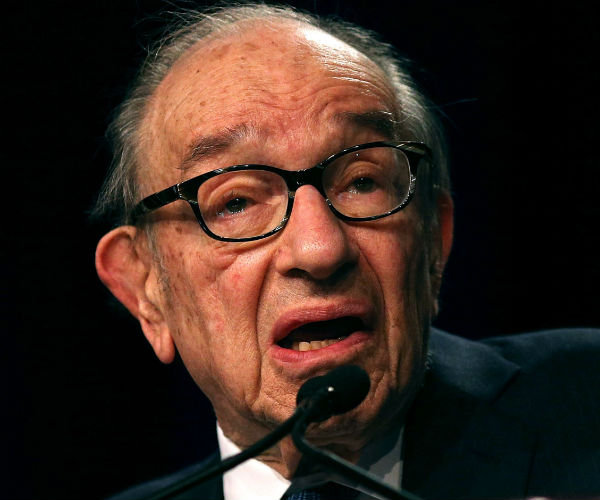He said fiscal policy, or the government's tax and spending programs, is more important than the central bank's actions to control the money supply, in a CNBC interview on Friday.
"If we [had] matched up to Simpson-Bowles basic recommendations of a few years ago, we'd be in a much better place now,” Greenspan said. “And we could have a legitimate discussion about monetary policy."
Former Republican senator Alan Simpson and Erskine Bowles, the Democrat former chief of staff for President Bill Clinton, are co-chairmen of President Barack Obama's commission to create a long-term federal budget. The 18-member panel was unable to approve a plan for the U.S. to save $4 trillion over 10 years by reforming taxes and entitlement spending such as Social Security.
The Fed’s monetary policies will be "become utterly irrelevant" if lawmakers can’t break the political gridlock hampering fiscal policy, Greenspan said. "Both [parties] have been afraid to touch the third rail of politics."
The Fed hasn’t raised interest rates since 2004, when Greenspan still led the central bank. He was chairman from 1987 to 2006 after being appointed by President Ronald Reagan.
Ben S. Bernanke, Greenspan’s successor as Fed chairman, cut interest rates to nearly zero percent in 2009 as the U.S. economy suffered its steepest decline since the Great Depression.
Rates have stayed near zero since then, while the central bank’s stimulus efforts included several rounds of “quantitative easing,” or the purchase of government and mortgage debt to pump trillions of dollars into the financial system.
The Fed has waited to raise rates until the economy showed signs of sustainable growth with low unemployment and rising inflation. But that hesitancy has led to asset bubbles that are at risk of imploding, say critics including former White House budget director David Stockman.
Current Fed Chairwoman Janet Yellen said a rate hike was likely this year, but that was before stock markets worldwide fell into correction territory last month. China rattled investors by devaluing its currency in an effort to stimulate its slower-growing economy.
Gold Hedge
One Fed critic said investors should be prepared to buy gold during any price declines as central banks maintain stimulus efforts.
“Gold continues to be unloved, which I view as a reflection of investors’ complacency and/or ignorance of actual global monetary conditions,” said strategist Michael E. Lewitt in this month's edition of his Credit Strategist newsletter. “Those who know better should use current price weakness to add to their positions.”
The yellow metal has declined by 12 percent to about $1,135 an ounce for the 12 months ended Aug. 31 with the expectation that the Fed would begin raising interest rates this year for the first time since 2004. A rate hike would boost the value of the U.S. dollar in relation to precious metals and foreign currencies.
Lewitt said investors need to be prepared for the likelihood that the central bank maintains loose monetary policy, possibly keeping rates low for extended periods after small hikes.
“The biggest factor that could upset the current course of markets would be a potential change in Fed policy that weakens the dollar,” he said. “Nobody should underestimate the cowardice or incompetence of the Federal Reserve.”
Meanwhile, Greenspan said next year’s presidential election isn’t supposed to sway the central bank’s decisions on interest rates.
"The Fed cannot be looking at the political calendar," he said. “If it does it's going to run into trouble. The Fed is going to get criticized no matter what we do.”
